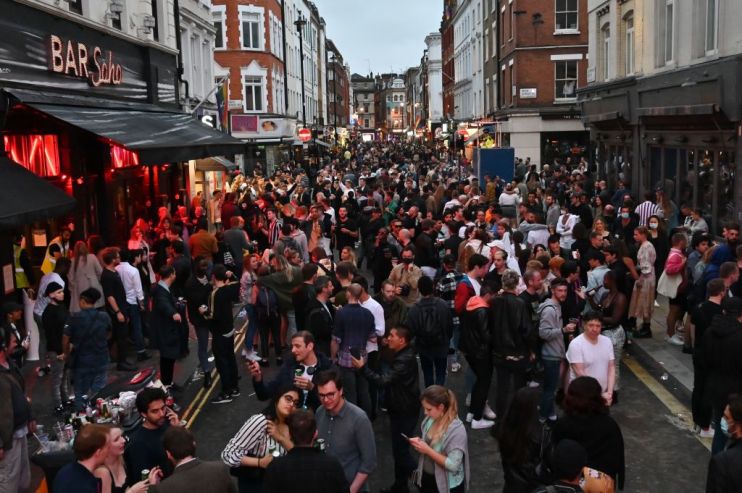‘Freedom day’ could be delayed by up to four weeks

The government is considering a delay of up to four weeks to the end of coronavirus restrictions in the UK, originally planned for the 21 June.
Ministers are considering a delay in order to give people more time to get vaccinated against the virus, and to give businesses more “certainty”, The Times first reported.
An extension of two to four weeks to the original lockdown easing timetable is being discussed by the government, among rising concerns about the Delta variant that originated in India.
Speaking on BBC Breakfast, Shadow foreign secretary Lisa Nandy said it was “highly unlikely” the full relaxation of coronavirus restrictions will go ahead later this month.
“I am desperate to unlock, I think like everybody else, to try to get back to normal,” Nandy said.
“But I think if we proceed too fast, if the government can’t get control of the new variant that has emerged which is more transmissible than previous variants, then we could end up in another lockdown and this has got to be the last lockdown.”
The Delta variant now accounts for 90 per cent of coronavirus cases in the UK and is understood to be around 60 per cent more transmissable than the Alpha variant that was previously dominant in the UK.
The British Medical Association this afternoon called for a delay to the final lifting of lockdown restrictions due to case numbers “rising rapidly”.
The BMA warned that the planned 21 June date would not give time for enough people to be vaccinated — especially as full protection is achieved only two weeks after a second jab.
Health secretary Matt Hancock told the Commons on Tuesday that the government still lacked the data on whether the vaccine was effective at preventing hospitalisations and death in people who catch the Delta variant of the virus – and that it would take a “couple of weeks.”
This could mean ministers will err on the side of caution when they’re due to make a final decision about the next steps of reopening on 14 June.
A government minister told City A.M. that scientific groups are currently churning the data that will determine when restrictions will ease over the next few weeks, and that the least desirable outcome is having to go back into lockdown if restrictions are eased too early.
“The problem with speculation is that you get a lot of cancellations – especially with weddings and ticketed events,” the source said.
“Stopping and starting is much worse for businesses than holding off for a little longer with the easing of restrictions.”
A total of 42,323 cases of the Delta variant of coronavirus have now been confirmed in the UK, up by 29,892 from last week, Public Health England said.
Vaccines minister Nadhim Zahawi appealed to people who have not had their first dose of the vaccine on BBC Breakfast on Friday, highlighting that “Three quarters of the 12,500 people who were infected with the Delta variant hadn’t had a jab, so it’s really important.”
In response to reports that the so-called “freedom day” could be delayed four weeks, vice-president of the Association of Directors of Public Health Jim McManus said that pushing back the June 21 reopening would “stop us going backwards”.
“Businesses and organisations have done so well in reopening that if we just keep that going for a few more weeks, and invest that little bit of time to keep us going forwards, it will stop us going backwards,” he told BBC Radio 4’s Today programme.